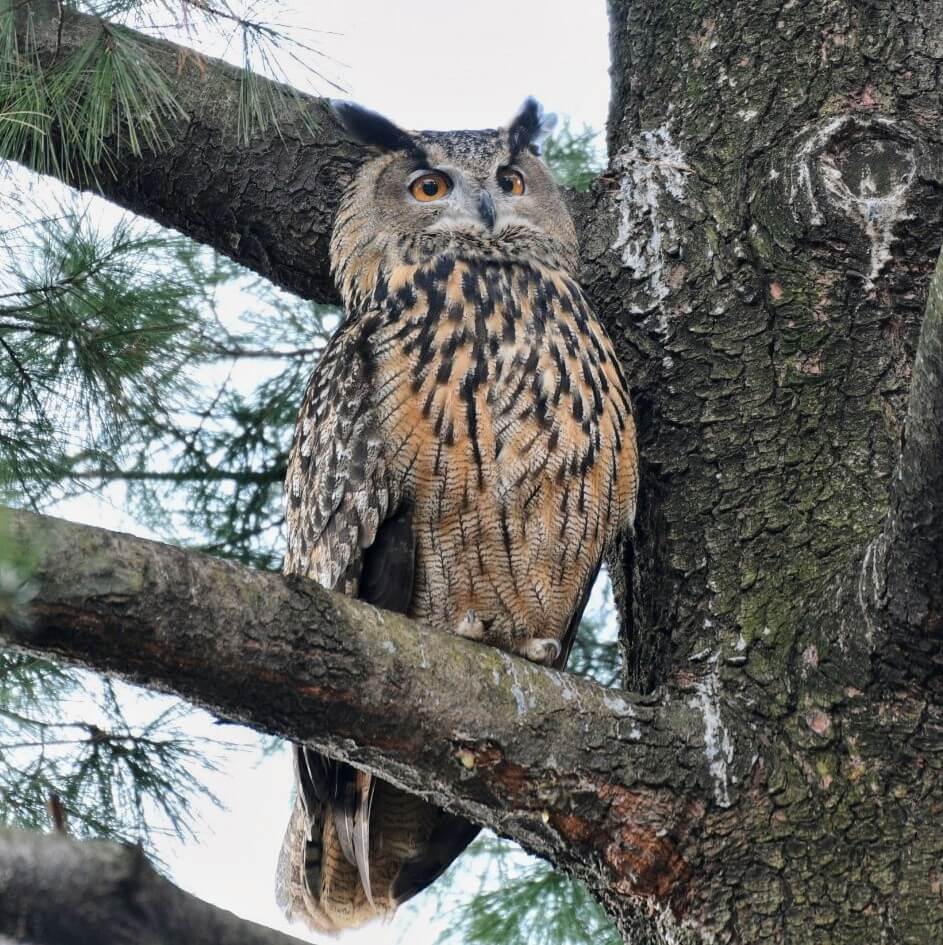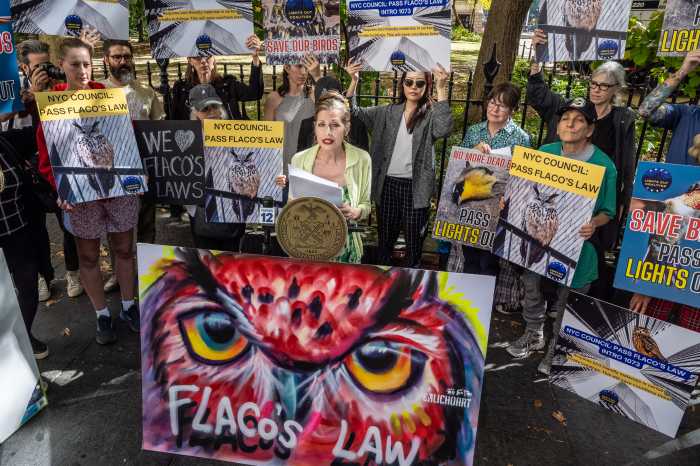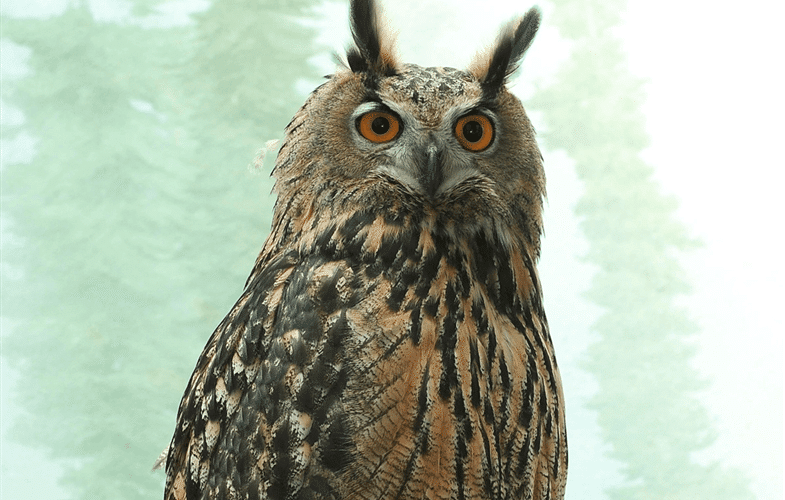After the tragic death of Flaco, the owl who turned into a sensation following his escape from the Central Park Zoo, local legislators are looking to make the skies safer for birds — and make sure his death was not in vain.
“I’m gutted at the death of Flaco the owl, who delighted countless New Yorkers through his presence in Central Park,” said Manhattan state Sen. Brad Hoylman-Sigal. “His death, after apparently striking a glass window pane, raises the importance of our passing common-sense laws to help stop preventable window strikes, which kill millions of birds, like Flaco, each year.”
Hoylman-Sigal, who had originally authored the “Bird Safe Buildings Act,” is planning to rename the bill the “FLACO Act” — paying homage to the Eurasion eagle-owl that captured the hearts and minds of New Yorkers since Feb. 2.
The law, Hoylman-Sigal said, would make sure that any new state-owned or state-leased buildings building, or any such existing building that undergoes significant alterations, would incorporate bird-friendly designs to reduce the possibility of bird collisions.
One major way the bill aims to stop such incidents is through redesign of buildings windows.
Ideas such as placing patterns atop glass windows, or adorning them with exterior screens, can go long ways towards making sure birds are able to distinguish between windows and open skies — therefore stopping them from flying directly into windows and injuring themselves.
Other possibilities include placing bird feeders directly next to windows, which divert birds away from the head-on collisions that are too often deadly to fowls like Flaco.
Without the legislation, nearly 1 million birds in New York City, and a billion birds across the country, will continue to die from collisions with buildings, Hoylman-Sigal said.
“By renaming our legislation to require state-owned buildings to incorporate bird friendly designs, we’ll not only honor this magnificent creature, but hopefully inspire our legislative colleagues to pass the FLACO Act,” he said.
In addition to renaming the bill to the FLACO Act, Hoylman-Sigal also pushed for the passage of the Dark Skies Protection Act — which would reduce light pollution in New York but forcing building owners to cover most non-essential outdoor lighting with a light shield, or make it motion activated. Alternatively, they could turn off any non-essential lighting between 11 p.m. and 5 a.m.
According to the legislator, those external lights can often draw migrating birds into dangerous urban areas when they are migrating — thus putting them in the more dangerous position of being surrounded by tall skyscrapers.
“It was a heart-wrenching story to read about the death of Flaco the owl, most specifically because it was a senseless, unnecessary, and human-driven death,” said Assembly Member Anna Kelles.
While the legislators joined together to urge the passage of both bills, the Central Park Zoo continues to place the blame for Flaco’s death squarely on the vandal who freed him by cutting the metal mesh that encased him inside the park.
“The vandal who damaged Flaco’s exhibit jeopardized the safety of the bird and is ultimately responsible for his death,” the Wildlife Conservation Society said. “We are still hopeful that the NYPD, which is investigating the vandalism, will ultimately make an arrest.”
Read more: Chinatown Welcomes Lunar New Year with Joyful Celebrations





































